The Court Jew Who Hated Kings
“When I was there in the court of the king, I wearied myself by crying out until my throat was dry,” Don Isaac Abravanel claimed, recounting his pleas to Ferdinand of Aragon to cancel the expulsion of Spanish Jewry. “Ask for many gifts and bribes of gold and silver, everything that belongs to every man of the House of Israel he shall give on behalf of his land.” But in July 1492, three months after the edict of expulsion had been published, Abravanel sailed with tens of thousands of other refugee Jews to Italy, where the history of Sephardi Jewry and its most illustrious leader resumed on somewhat friendlier grounds.
Isaac Abravanel was born in Lisbon, Portugal, in 1437 to a learned, wealthy family that traced its ancestry to King David. Anti-Jewish riots and conversions two generations before Isaac’s birth bifurcated the Spanish Jewish community into newly Christian and Jewish halves. The Abravanels split too, and those who remained Jews left Spain for Portugal, where Isaac received an extraordinary education in Jewish, Christian, Islamic, and pagan classics—and began an international political and literary career more eclectic perhaps than that of any Jew since King David’s son Solomon.
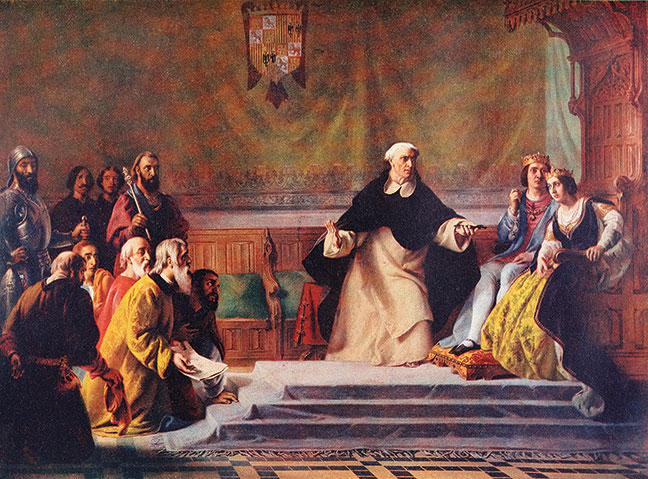
Abravanel is best remembered as the leader of the Sephardi exile and as arguably the first modern Jewish political thinker, but Cedric Cohen-Skalli resists cramming his subject into “a single period, movement, or role” in his new intellectual biography. Human lives are not dissertations, and one of the pleasures of Cohen-Skalli’s book is its modesty about getting to the bottom of who Abravanel was. “Don Isaac remains a mystery,” he writes, a “mosaic of innovation and conservatism” in service of both the preservation of the Jewish people and the distinctive Sephardi tradition.
How Abravanel understood his nation and tradition is perhaps best explored through three aspects of his life and thought. The first is his innovative theory of government, which argued for something like early modern republicanism. Second is his leadership during the Inquisition and just before the Spanish Expulsion, which remains a subject of some controversy. And third is the vexed question of Abravanel’s messianism.
Isaac Abravanel was born in the fifth decade of the Portuguese Avis dynasty, which under the leadership of Dom João I had resisted the unification of Iberia under a Castillian king. The Avis dynasty cultivated scholarship and the arts, and the learned Abravanels made an influential life in Portugal. Don Isaac’s father was both a banker for Portuguese royals and a prosperous merchant, and his son seems to have added tax farming to the family portfolio. The king officially rewarded Abravanel’s services with “all the honors, privileges, liberties and franchises which the Christian neighbors and inhabitants of this city [Lisbon] enjoy and should enjoy,” though the politically savvy Abravanel must have had his doubts.
One of the high points of Don Isaac’s Jewish leadership in this period came in 1471 when he successfully ransomed hundreds of Jews who were captured and enslaved after the Portuguese reconquest of Arzila, a fortified city on the coast of what is now Morocco. Adapting the famous words of the Passover haggadah, Abravanel imagined the Seder that these freed Jews could soon have: “We were slaves for a short time and the Lord led us out of slavery into freedom . . . and now we are, as all the multitude of Israel, free.” A dozen years later, Abravanel’s Portuguese career ended dramatically when his longtime patron, the Duke of Braganza, was executed for conspiring with his peers to halt the Portuguese king’s encroachment on noble privileges. Don Isaac evaded arrest and fled to Spain (whether he had, in fact, conspired with the duke is unclear).
Soon after his escape from Portugal and arrival in Castile, Abravanel began to write his commentaries on the Former Prophets. His interpretation of the founding of the Israelite monarchy in 1 Samuel (complemented by remarks on Exodus and Deuteronomy) begins his bold argument against monarchies and in favor of republics. In 1 Samuel 8, the Israelites demand a king, and God acquiesces only reluctantly. The sons of Samuel were unprofessional and rapacious, and the extant system of judges did not work well. Moreover, the establishment of a monarchy is commanded in Deuteronomy. So, Abravanel asks, whence the Lord’s displeasure? His answer is that the Israelite elders were not requesting a king under divine law but a tyrant emancipated from legal restraint. Furthermore, Abravanel does not read the passage in Deuteronomy as requiring a monarchy. Rather, allowing for man’s weakness for autocracy, monarchy is merely permitted.
At the beginning of his argument for biblical republicanism, Cohen-Skalli writes, “Abravanel harshly criticizes the prevailing view that draws a parallel between the reign of a human king over his country and the reign of the heart over the body,” an analogy common in Jewish and Christian sources (Aquinas, for instance, defended such a view). Abravanel proposes instead:
It is not impossible that a nation should have many leaders who convene, unite, and reach a consensus and can thus govern and administer justice. . . . Reason suggests that . . . between the one and the many, the many should be heeded.
He also suggests term limits. Cohen-Skalli does not note that the majoritarian principle was present already in the Talmud (it governed individual courts), but its extension to a national regime was certainly new. Abravanel suggests further that an individual monarch is more vulnerable to passion and sin than a group of rulers (the possibility of a tyrannical majority does not seem to worry him). Abravanel complements his antimonarchism in Exodus with a discussion of what is now known as “subsidiarity”—the principle, central to Catholic political thought, that decisions should be made as close as possible to those whom the decisions affect. This comes in an exploration of Jethro’s suggestion that Moses create a system of judges and courts rather than trying to judge all of Israel himself.
Cohen-Skalli convincingly situates Abravanel’s republicanism in both his own experience of monarchy and his political and intellectual milieu. “Renewed interest in the republican model and its political and philosophical underpinnings was the outcome of a complex series of processes taking place in medieval and early modern Italy,” some of which Abravanel mentions. The republicanism of Florence and Venice, which were free from papal or Holy Roman domination, expressed itself, in the famous words of Leonardo Bruni, in “a system of checks and balances,” short terms in office, and a kind of constitution ensuring that “there is no one in Florence who stands above the law.”
In his commentary on the passage in 1 Samuel, Abravanel writes that kings are allegedly needed to fight wars, to dictate laws, and to punish, but “‘these three notions are all [properly] attributed to God the blessed. . . . Therefore, He is their king and no one else.’” In Abravanel’s view, writes Cohen-Skalli, “the idea that a king is necessary for the Jewish people requires one to assume that God’s covenant with the nation of Israel was insufficient.” If Israel has only a divine monarch, then any human pretender to a throne is presumptuous, even idolatrous.
Abravanel proposes, as Cohen-Skalli explains, a covenantal regime that “attributes to God the role of legislator and savior and draws a stark distinction between the divine source of law and military success, and the person chosen to serve in a military or a judicial position.”
“Look at their abominations and their idols!” Abravanel exclaims to his reader, pointing to monarchies both contemporary and ancient. As Cohen-Skalli notes, Abravanel’s hatred of monarchy was personal as well as theological-political.
In 1483, the year Abravanel fled to Spain, Tomás de Torquemada was made its grand inquisitor. The ideological origins of the Inquisition are a matter of scholarly contention. The historian—and father of the Israeli prime minister (as of this writing)—Benzion Netanyahu argued that the Inquisition was not really about the purging of suspected religious heretics among the recently converted. Rather, it was motivated by socioeconomic and quasi-racial hatred of Jews, converted or not, and this hatred laid the ground for inquisition and expulsion. The anti-Jewish riots of 1391, which split the Abravanel family into Jewish and Christian sections, introduced into the Gentile Spanish population thousands of new Christians. The haste and context of these conversos’ entry into the church worried Catholic officials. Many of these converts were, no doubt, insincere Christians, and some secretly practiced some form of Judaism. Ferdinand and Isabella founded the Inquisition to investigate heresy among these new converts and their descendants. A principal threat to the Catholic faith of ex-Jews was the nearby presence of publicly practicing Jews. And so, in the 1480s, the Spanish legislature dictated that Jews (and Moors) were to live separately from Christians in Spanish cities and towns. Ferdinand expelled the Jews from Andalusia in 1483 and from Aragon in 1486, though the rest of Spain, and important positions in the Spanish government, remained open to Jews.
As the grand inquisitor, Torquemada presided over trials, executions, and a campaign of propaganda against conversos and Jews. “It is not difficult,” Cohen-Skalli writes, “to detect the general trend that ultimately led to the expulsion of the Jews.” The defeat of Muslim forces at Granada in early 1492 unified Spain under Catholic rule and relieved many of the fiscal burdens that made elite Jewish financial expertise so important to Ferdinand and Isabella. The edict of expulsion was signed in March of that year and made official policy at the end of April. By July, all Jews remaining in Spain were Jews in secret.
Abravanel claimed to have met with the Catholic monarchs three times during this period to have the edict dismissed, but Cohen-Skalli is skeptical. “Scholars have been unable to find any evidence that Abravanel was in Granada during April” after the Reconquista. What is known is that Meir Melamed and Abraham Seneor, Abravanel’s peers in political prominence, converted to Christianity, and Abravanel led Iberian Jewry to Italy.
But should he have known better in the decade leading up to 1492? Cohen-Skalli quotes Netanyahu’s severe verdict:
That a Jewish leader should have offered his services, particularly at such a time and place to rulers who were then openly forging a most dangerous weapon to be directed against his brethren—brethren by origin, if no longer by religion—must certainly appear extremely strange, to say the least, to a present-day reader.
Netanyahu wrote this a few years after a similar blindness (or so goes his argument) doomed German Jews. Cohen-Skalli dissents, but it is not entirely clear why: “It may be more accurate,” he writes, “to view the course of Don Isaac’s life in Castile in the 1480s as expressive of the two opposing facets of royal policy toward the Jews.” Perhaps, Cohen-Skalli writes, Abravanel relied “on the balance between the new anti-Jewish policies and the more traditional positive ones, a balance that was shockingly and unexpectedly disrupted.” But was there such a balance in fifteenth-century Spain?
Successive expulsions of Jews coupled with a harshening inquisition against their converted brethren evidenced a steady anti-Jewish policy, parts of which the monarchs perpetrated and parts of which they merely permitted. Moreover, this was the culmination of more than a century of persecution. Abravanel seems to have either woefully misread Spain’s rulers or vastly overestimated their trust in him personally. Nonetheless, he chose to leave as a Jew rather than stay as a Catholic, an act of personal sacrifice and political leadership.
The Spanish Expulsion dispersed Europe’s largest and oldest Jewish community to Holland, to parts of the New World, and to Italy—then to the Ottoman Empire. Abravanel and his family first went to Naples, where Abravanel got into the salt, grain, and oil businesses and completed his commentary on the book of Kings. In his introduction to the commentary, he compared Spanish Jewry’s expulsion to the destruction of the first Israelite temple two thousand years prior and urged his readers to rededicate themselves to Torah study. Three years after arriving in Naples, Abravanel had to escape again—first to Corfu, then to Venetian-controlled Monopoli, and finally to Venice itself, which he regarded as the finest contemporary example of republican government. After escaping Naples, Abravanel turned from reminiscence to prognostication. The messiah was near (or so he thought). In a very short period, Abravanel produced his messianic trilogy: Ma’ayanei HaYeshu’ah, on the book of Daniel; Yeshuot Meshicho, on messianic narratives in the Talmud; and Mashmiah Yeshuah, on messianic statements in the books of the prophets.
Cohen-Skalli’s chapter on Abravanel’s messianism is largely an interpretation of the first of these works. It complements Eric Lawee’s chapter on the second, Yeshuot Meshicho, in his important 2001 monograph on Abravanel’s views of rabbinic tradition. Why did Abravanel turn to the book of Daniel? Cohen-Skalli writes:
He describes it as a prophecy of the hour, with contents that possess him and seize his attention against his will. Abravanel sees in Daniel a fruit that has ripened before his very eyes: in his own lifetime, the visions concealed in the book are coming true, revealing the secret of the expulsion from Spain.
Abravanel’s language supports Cohen-Skalli’s characterization. Of the prophets, he wrote, Daniel most “truly heralds good fortune and announces salvation, and at the threshold of exegesis on his visions, I have chosen to stand. And because when the nation of God suffers, its heart grows hot, and the nation thirsts there for water, and their souls fail from thirst.”
Since the dissolution of the Roman Empire, Abravanel writes, Israel has lived its exilic life between “Edom and Ishmael, between Christendom and the Islamic world.” Abravanel interpreted Rome as the last of the “four kingdoms” mentioned in Daniel’s eschatological vision (the previous three were the Babylonian, Persian, and Greek empires). The fifth kingdom, the messianic one, will follow the great battle between Muslims and Christians, already begun in the Seljuk conquest of Constantinople in 1453. “In Abravanel’s view, the period between 1453 and 1503 CE was one of trials,” Cohen-Skalli writes, the expulsion from Spain being first among them. These trials would end, Abravanel thought, in the messianic age, followed by the resurrection of the dead two generations later.
Cohen-Skalli guides readers through the scholarly debate about “moments of historical crisis as explanations for the renaissance of messianic activity,” citing Moshe Idel’s influential argument that the accepted association between expulsion and messianism is unfounded. But even if “traumatic-historic” events have not always led to messianic enthusiasm, they sure seem to have gotten Abravanel going, and Cohen-Skalli himself offers a therapeutic reading of Ma’ayanei HaYeshu’ah. “The readers [of Abravanel] are meant to find solace for the tempests in their souls, for the suffering that, like thirst and hunger, chews away at their historical and religious consciousness.”
Nonetheless, Cohen-Skalli wonders whether “Don Isaac’s impressive messianic trilogy [is] evidence that he had fallen under the spell of messianism?” Such a question is in order only if there is evidence that Abravanel did not mean what he wrote seriously and literally. Cohen-Skalli does note certain hedges in Abravanel’s language, his continued devotion to business during the relevant period (not exactly what you’d expect of a millenarian), and his self-described attentiveness to his readers’ “thirst” for such discussions. But doubts, or double-mindedness, don’t indicate insincerity or mere rhetoric. And perhaps what displaced Jews thirsted for was not mollification but an interpretation of events that accounted, as any good theory would, for their extreme character.
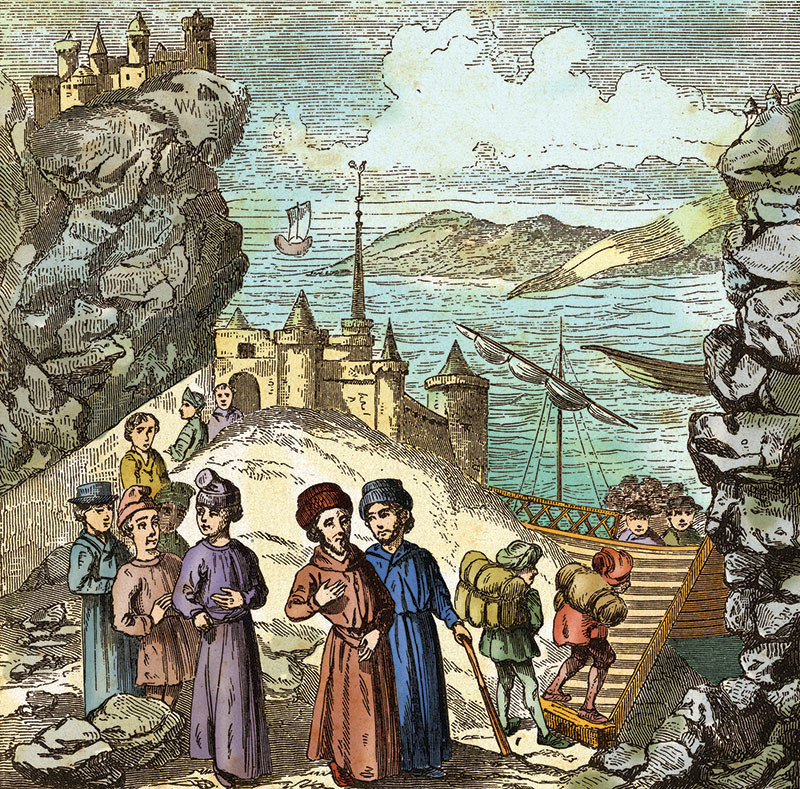
The neurotic care with which Abravanel calculated the dates of the messiah’s coming (despite the apparent rabbinic ban on doing so) and with which he matched Daniel’s prophecies to recorded history—and the fact that he then wrote two additional messianic works—would seem to indicate that Abravanel meant what he said. The messianic commentaries certainly served other functions—Eric Lawee masterfully documents the anti-Christian polemic in Yeshuot Meshicho, for instance—but the simple reading of their author’s intent remains compelling.
The last half-decade of Abravanel’s life was highlighted by trade negotiations between Venice and Portugal. Vasco da Gama’s discovery of a sea route to India around the Cape of Good Hope had undercut Venice’s influence over European trade with the East, which had gone from India to Arabia by sea, thence to Egypt on land, then by sea to continental ports, Venice premier among them. Desperate, the Venetians enlisted Abravanel to author a proposal to the Portuguese king that would keep the Portuguese trade centered in Venice. The Portuguese weren’t interested, ending Abravanel’s political career. He was buried in Padua in 1508.
Cohen-Skalli does not attempt to sum up Don Isaac Abravanel, which feels right, given the remarkably diverse career his book traces. If this intellectual biography has a fault, it is that Cohen-Skalli sometimes seems more interested in contextualizing, suggesting influences, and intervening in secondary and tertiary scholarly debates than he is in telling the reader what this great scholar thought about the religious subjects that were at the center of his intellectual life.
A final note is perhaps in order about the uncertain pronunciation of Don Isaac’s family name, since the question will have been nagging at least a few readers throughout this review. Cohen-Skalli vocalizes it as “Abravanel,” following modern scholarly practice. In the yeshivot where some of his works are still regularly read, he is generally referred to as “the Abarbanel” (hence Art Scroll’s Abarbanel Haggadah). In a footnote to an article in the 1968 Journal of Jewish Studies, S. Z. Leiman cited an Italian contemporary who pronounced it “Abarbineil.” English-speaking descendants of Don Isaac (who for much of the 1990s published a family newsletter) use several different spellings. Sadly, the etymology of this rather unusual family name, like many facts of its most famous bearer’s busy life, remains obscure.
Comments
You must log in to comment Log In
Suggested Reading
The Living Waters of History
A historical novel about the Spanish Expulsion tells us as much about current reading trends as it does the lives of Jews in 15th-century Spain.
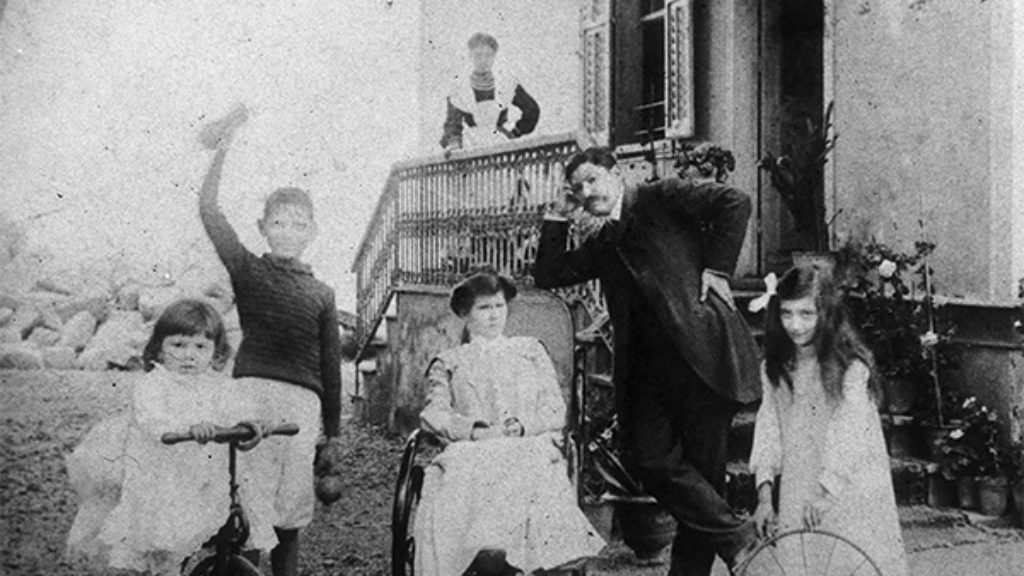
Passport Sepharad
The recent offers of citizenship by Spain and Portugal tap into a long, rich, and complicated Sephardi history of dubious passports, desperate backup plans, and extraterritorial dreams.
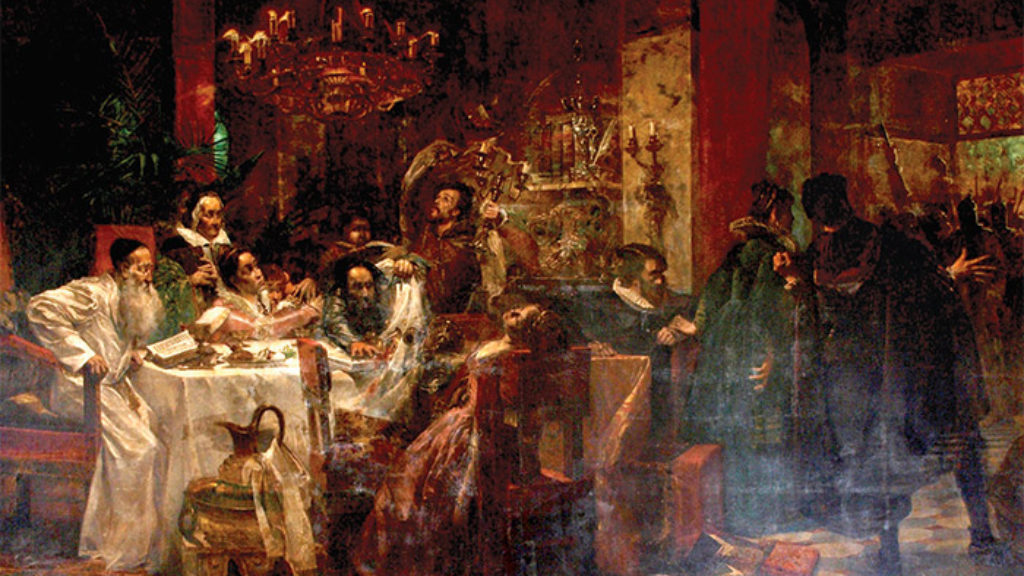
The Secrets of the Efod
How did it happen that some of the most brilliant anti-Christian polemics of the late Middle Ages were written by an (at least public) Christian?
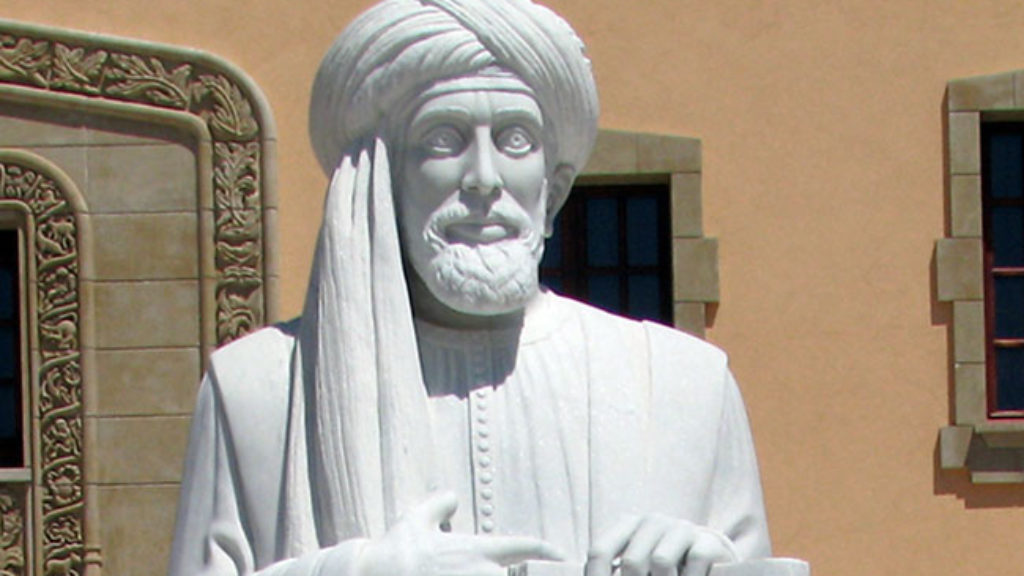
The Ubiquitous Gabirol
Solomon ibn Gabirol plunges into poetry, writes S. Y. Agnon, medabek atzmo be-charuz: glued to his craft, beading words with devotion.
gershon hepner
BALAAM'S ASS
Abravanel said Balaam’s ass died once it spoke,
for having spoken there was nothing more
it possibly could ever do but tell a joke,
which asses cannot do since they’re a bore.
Most people die before they speak a line,
that makes much sense, because the only way they find
that they can speak is asinine,
for which they are maligned by people of their kind.
David Z
Great piece, thank you. Re the pronunciation, I'm a little at a loss--why don't we have the Portuguese spelling and knowledge of how it would have been pronounced in Portugal? What is the etymology?